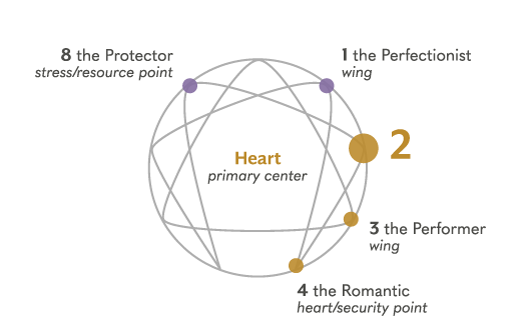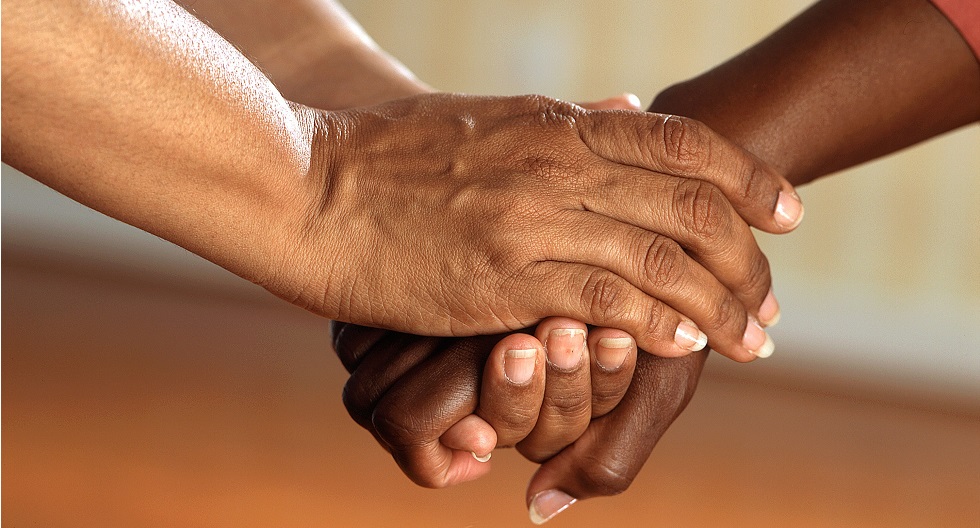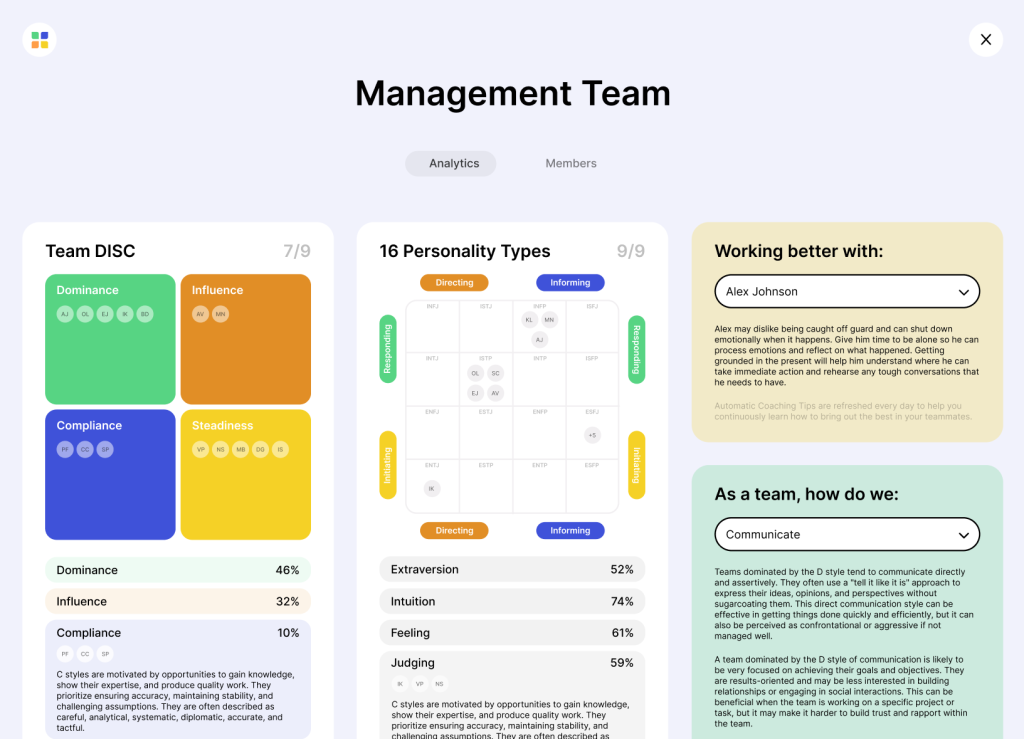Personality tests are a powerful tool to transform us into the best version of ourselves.
When we know our weaknesses and strengths we can improve and enhance them to achieve everything we set out to do in life.
The free enneagram test is one of the most useful diagnostics to know ourselves. It covers 9 types of human behavior that will help us to better understand our personality.
In this article, we will cover everything related to Enneagram type 2. From key characteristics to fears, love & growth and everything in between.

What is the Enneagram Type 2?
Enneagram type 2s are concerned and other-oriented people. They are understanding, sincere, kind and friendly. Usually, have trouble taking care of themselves and recognizing their own needs, but despite this, they are noble and selfless.
Want to be intimate with others and often do things for them to feel needed, although they can also be sentimental, flattering and manipulative.
Brief Overview of the Enneagram Type 2
Other names: The Giver, the Helper, the Caring.
Strengths
Helpers tend to be loving, compassionate, extroverted, humble and emotional. They care about their environment and need to play an obvious helping role in society.
Are charitable and warm persons, so they devote a lot of energy to their relationships and to comforting or helping others. Enneagram type 2s only feel satisfied when they help and participate in socially conscious works, as love is their highest ideal.
Weaknesses
Their greatest desire is to be needed and appreciated for their efforts. Feeling that they have sacrificed a lot, they begin to perceive that others are indebted to them.
This Enneagram type is prone to not recognizing their emotional needs, and becoming intrusive, demanding and manipulative if these are not met.
Also, because The Caring tends to help others meet their needs, they may forget to take care of themselves, leading to physical wear and tear and emotional exhaustion.
Fear
They fear recognizing their own emotional and affective needs due to their self-image of generosity and giving to others. Besides the fear of being unworthy of love and of alienating their friends and family because of not being needed.
Desire
The need to feel special is satisfied by the love of others. This influences his sense of self-love, where his lack can only be filled by being “needed” by others.
Core Motivation
Twos want to be loved and need to get others to satisfy their emotional needs. They do this by projecting an image of “saviors” and keeping it fueled by the love and recognition of their dedication by the people around them.
Speaking Style
The Twos give advice to receive love and attention from others. They do so in a kind and sympathetic way, seeking to comfort and be people-pleasing. So their communication style can be described as friendly and compassionate.
Wings for Enneagram Type 2
The Enneagram type 2 wings are the One and the Three. This means that despite the main features of “The Caring”, some characteristics of these Enneagram types influence it through the wings.
These variations are presented as follows:
Wing 1 (2w1)
Wing 1 (2w1) also called “The Servant”: These Twos connect with social service and help make the world a more humane and better place. They are more committed to the welfare of society, which makes them sometimes judgmental and obsessive about helping others.
Wing 3 (2w3)
Wing 3 (2w3) also called “The Host“: These Twos are more extroverted, social and talkative. This is because they focus more on helping their known social environment than on the world cause. They take pleasure in their success as altruists and sometimes focus more on the recognition of people around them than on the real needs of the people they help.
Enneagram Type 2 Key Characteristics
Kindness
The first thing we can notice is their kindness, as they want to be very close to people and try to be as attentive and courteous as possible to achieve it.

Generous
They give support and advice hand over fist, becoming excessively people-pleasing. Are understanding and give to others what they would like to receive from them unselfishly.
Extroverted
They show great enthusiasm for interacting with people, as they enjoy the company, attention and love that others can give them. They focus on society and all that is outside themselves.
Communicative
They openly express their desire to help by being communicative and listening to the problems of others. This allows them to know people’s weaknesses to comfort and get closer emotionally to them.
Selfless
The Givers renounce their personal needs to devote themselves to the needs of those around them. They get satisfaction from feeling that are an essential part of others, expecting them to repay their sacrifice with love.
Sentimental
They are very sensitive, warm and easily moved. Attach great importance to tender feelings and act on them rather than on rationality.
Well-meaning
They aim to do good above all else and justify their actions based on love and the human cause. Although they sometimes abuse this to satisfy their repressed needs, to be recognized and to deserve love and attention for their good deeds.
Core Values of the Enneagram Type Two
Altruism
They give body and soul to help, are highly sensitive to people’s pain and feel the need to be altruistic and improve the lives of those around them.
Kindness
For them, giving to others is better than giving to themselves.
Reciprocity
Their actions are rewarded with love and attention from others. Therefore, what they give to people they do in return for love and feeling needed.
Love
It is the value that moves them to act, listen and give themselves to the causes of others. It is what allows them to perceive the needs of those around them and what satisfies their affective needs.
Jobs and Careers Paths for Enneagram Type 2
In the business environment, they are generous, friendly and empathetic people. Are good at anticipating and attending to the needs of their co-workers and do not like to feel that they are more than others.
Apart from feeling the need to help and influence the people around them positively, they also like to be intimate with them to help them grow personally.
Despite all this, they can sometimes become self-centered because of the need to be recognized for their good deeds, and even jealous of the attention.
They thrive in areas that involve interaction with people, such as human resources, customer service or social work, where they would be recognized for their good treatment and service to others.
List of the best career paths for enneagram type 2:
- Psychology
- Pedagogy
- Nursing
- Education
- Veterinary medicine
- Customer service
- Receptionist
- Secretary
- Volunteering
- Social worker
Type 2 Development Levels
Healthy levels
At the first and best level, they feel fortunate to be a part of other people’s lives and to be able to offer them help.
At this point, become humble, altruistic and selfless wholeheartedly, also recognizing their emotional needs and supplying them without leaving that burden on others.
At a second level, are compassionate, empathetic, sincere and able to put themselves in the place of others. They reflect and take into account their emotional needs while remaining giving and affectionate.
At a third level, they can encourage and see the best in the people around them, as well as be grateful for the affection they are offered, without demanding anything else in return. They give great importance to service but maintain a balance between it and their personal needs.
Average levels
At a fourth level, Twos tend to please people with intentions of being closer to them, becoming extremely demonstrative and “dazzling” with their good intentions and kindness. They are sycophantic and a bit obsessed with love, preaching it as a supreme value constantly.
At a fifth level, they become nosy and even intrusive. Their constant desire to feel needed makes them controlling and possessive, expecting what they give back to satisfy this.
They become codependent and justify their actions with “love” and the inability to do enough for the welfare of others.
On a sixth level, they become increasingly narcissistic, coming to perceive themselves as indispensable to others. Seek to make people dependent on them by using their weaknesses to feel needed and satisfied with themselves.
At the same time, they are presumptuous, hypochondriacal and martyr themselves for others.
Unhealthy levels
At a seventh level, put their desires first, becoming manipulative. They make others suffer by labeling them as ungrateful and blaming them for how much they owe them. Often develop addictions to food and medications to fill their emptiness.
They are also self-deceiving, avoiding seeing how selfish their behavior is and undermining people with belittling and hurtful comments.
At an eighth level, they can be domineering, and aggressive and push others to get what they want. For their good deeds, feel that everyone owes them and may resort to demanding sexual favors, payment of old debts, and even money to satisfy their desires.
At the worst and lowest level, tend to victimize and justify themselves by saying that they feel abused, expressing deep resentment when they do not get what they want with their attitude.
They become aggressive, toxic and somatization of these attitudes are used to manipulate pity and guilt. At this point, they develop disorders such as Histrionic Personality Disorder and Factitious Disorder.

Personal Growth Recommendations
Be aware of your limits and take care of yourself
Often, they tend not to take care of themselves and focus on taking care of others in a selfless way. They think that taking care of themselves and putting their needs before those of people who need help is selfish.
This leads them to suffer physical, emotional and psychological wear and tear by not resting nor respecting their limits in terms of their social service
Recommendation: Take care of yourself and respect your limits. Even if you want to, you cannot carry everything by yourself. Remember that to help and take care of others, you must take care of yourself first. Otherwise, you will not be able to do so and you will create more problems than solutions.
Learn to give without getting anything in return
Helpers tend to give to receive in return. That’s why they strive to be valued and to please the people around them.
They seek to supply their needs with the love and attention of others and when they don’t get it, they may engage in neurotic and negative attitudes.
Recommendation: It is impossible to please everyone. Therefore, you have to be aware of all the efforts you make to please others and you should not place so much value on how they perceive you. Understand that many people do not express or show their liking the way you want them to and that does not make you less valuable or loved. Give to feel good about yourself, not to expect recognition or approval from others.
Be honest and win over people of goodwill
When they are unaware of their true motives for helping or giving, they systematically do it to please others.
Tend to flatter and control people with excessive kindness and manipulative behaviors to get the affection and attention they need.
They do whatever it takes to win others over, even going beyond their limits just to satisfy their wants and desires.
Recommendation: Honesty is appreciated much more than what you do or say to get what you want from someone. When you stop leaning on others to fill your emptiness, you will understand that you can help by first helping yourself. Don’t manipulate by being dishonest, be a window to truth and true altruism, which is willing to help no matter what the conditions are.
Do not boast about your good deeds or use them to call attention to yourself
Many times, Givers do good deeds in search of recognition and attention, worrying more about this than about people’s real needs.
Their need is so great that when they do not receive what they expect, they become disappointed and blame others, making them feel guilty and ungrateful.
Recommendation: Some people do not want your help and that does not mean that they do not love you or appreciate your goodwill. Not everyone will thank you for your favors, so when you do something, do it from the heart and do not remind them or use it to idolize you. Life is in charge of returning the good you give in the right measure that you need it. But for that, you must learn to help yourself just as you wish to help and improve the world around you.
Behavior and Patterns of the Enneagram 2
Action Patterns
What motivates them to act is their incalculable thirst to help. Because of this, they cultivate their relationships with care and attract many people with their generosity and kindness.
They like to make others feel special through compliments and good treatment, enjoying reciprocity when they are corresponded. Do not mind ignoring and neglecting their own needs to perform, as long as their needs are met.
They are capable of doing anything to feel wanted and needed, even creating dependency in others to supply this constant desire in the worst case. Are also excellent at giving advice and act efficiently when they perceive that someone needs help.
Feeling Patterns
They are demonstrative people, who attach great importance to feelings and express them spontaneously to others. Are characterized by their empathy, warmth and solidarity, but they can also become angry and experience a lot of pain when they are belittled and undervalued.
They are very perceptive, so they can intuit the emotions and feelings of people around them, giving help even when they are not asked for it.
It should also be noted that, although their pride does not allow them to ask for it, they long for the appreciation of those they protect.
Thinking Patterns
Twos devote a lot of energy to understanding the needs of the people. This is the main reason why their thoughts are always focused on helping others rather than on their own needs and desires.
They are considerate and enjoy feeling valuable and important to society. This feeds their pride and self-esteem and leads them to hold back to make room for the concerns of others.
They are very attentive and pay attention to every detail of the people they want to be intimate with.
Famous Enneagram Type 2 You Might Know
- Alexander The Great – Emperor and Conqueror
- Cleopatra – Diplomat and linguist
- Eva Perón – Politician and actress
- Diana of Wales – Royal Princess of Wales
- Shakira – Singer
- Pamela Anderson – Actress
- Luciano Pavarotti – Singer
- Elizabeth Taylor – Actress
- Mother Teresa of Calcutta – Catholic Nun
- Naomi Campbell – Singer
- Farrah Fawcett – Actress
- Yoko Ono – Singer
- Raphael – Singer
- Adele – Singer
- Leticia Sabater – Singer
- Bill Cosby – Singer
- John Travolta – Actor
- Marilyn Monroe – Actress
- Monica Lewinsky – Political activist
- Danny Glover – Actor
- Whitney Houston – Singer
Enneagram Type 2 FAQ
How to Get Along With Enneagram Type 2?
Even if they don’t ask for it, give them recognition with generosity and affection. Be grateful for what they do. Wrap criticism in praise. Don’t embarrass or humiliate them. If you explain your needs calmly, they will help you.
Let them get to know you, get personal. They don’t take kindly to being helped or pitied but love to have favors returned. Let them be the ones to help others. And above all, let them know they are important and special.
How Does an Enneagram Type 2 Handle Stress?
In stressful situations, Twos martyr themselves by feeling that they have let others down and become aggressive and hurtful. Under these conditions, they manipulate others by saying that they feel abused and overwhelmed by the needs of others.
What Are Good Enneagram Type 2 Jobs?
The best jobs for this enneagram type are psychology, nursing, pedagogy, teaching, customer service, volunteering and social work.
Final Words
If you discovered that you are an Enneagram type 2 by taking the free Enneagram test, you will have identified with many of the characteristics mentioned here.
Your dedication to others is admirable, but you must take care of yourself to help them. Only by recognizing your limits and respecting them, giving without expecting anything from others and taking care of your emotional needs will you be able to improve your life positively.
We hope this article has led you to know yourself better and to identify the strengths that will lead you to a happier and more fulfilling life.

